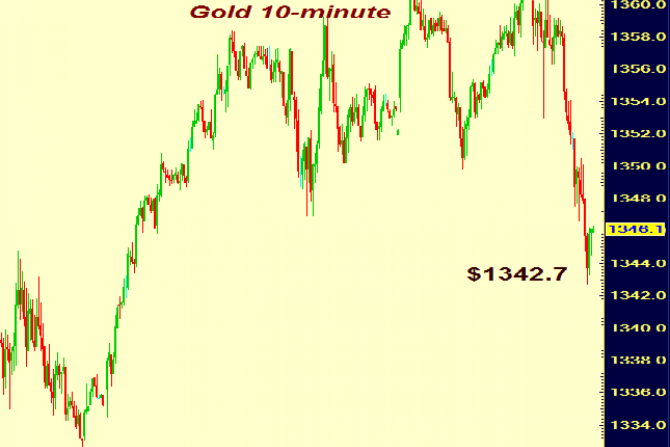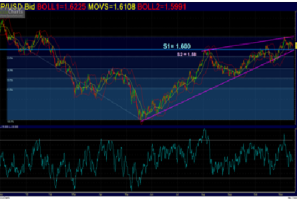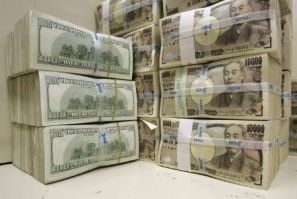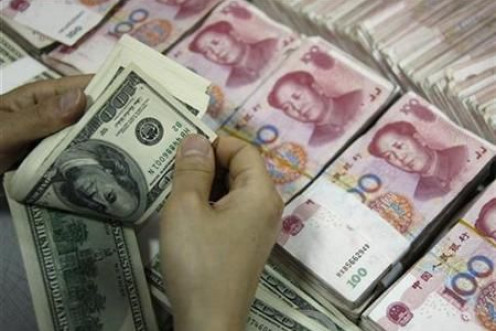The dollar and yen recovered losses on Thursday as risk-taking sentiment was tempered ahead of a European Central Bank policy meeting later in the day and key U.S. jobs data on Friday.
Japanese ruling party powerbroker Ichiro Ozawa, challenging Prime Minister Naoto Kan in a party leadership vote, said on Thursday that action was needed to stem rapid rises in the yen that are threatening the economy.
The dollar was on the defensive on Thursday, retaining most of the losses sustained the previous day when upbeat data helped lure investors away from safe-haven currencies and assets.
Figures released on Wednesday showed the U.S. manufacturing sector grew faster than expected and China's factory output regained momentum in August, while Australia's economy expanded at its fastest pace in three years in the second quarter.
Global news leader International Business Times (IBTimes.com) and market research firm Forex Datasource announced the results of the 2010 FX Traders' Choice Awards during an award ceremony held in New York City on Aug 30, 2010.
The retail FX industry is reaching puberty and it has brought a few million people to trading Forex over the past 10-12 years.
FXDD, a leading online Forex broker, has received six 2010 FX Traders’ Choice Awards, including the Eagle Award for top honors in the Global FX Broker – Best Overall category.
The Australian Dollar has opened slightly lower today after losing more than one US cent due to an increase in risk aversion in Europe and the US, as evidenced by falls in the Dow Jones Industrial Average to as low as 9,938 on the release of durable goods orders and further evidence of weakness in the US housing market.
With political uncertainty hanging over the Aussie dollar recent attempts at a rally have been short lived as resistance around the 89 cent mark put a lid during yesterdays Asian afternoon session.
* New inflation or price-level targets still options
* BoC to study its role in securing financial stability
* Must be cautious, price stability will not be sacrificed
The U.S. dollar pared losses against the yen on Tuesday after the Nikkei business daily reported the Bank of Japan is considering additional steps to loosen monetary policy.
The dollar extended declines versus the Japanese yen on Tuesday after a report showed sales of previously owned U.S. homes dropped more steeply than expected in July.
Chile's peso is in line with longer-term fundamentals in real terms but the central bank can intervene in exceptional circumstances and does not rule out using the tools at its disposal, Central Bank President Jose De Gregorio said on Tuesday.
The yen rose to a 15-year high against the dollar and a nine-year peak versus the euro on Tuesday amid fears the global economy is slowing, testing Japanese authorities' resolve to stem the currency's climb.
The euro hit a nine-year low against the yen on Tuesday as the loss of key technical support led speculators to short the currency in the hope of forcing stop-loss sales against both the yen and the dollar.
This morning the AUD is fairly unchanged from the levels traded yesterday, currently trading around USD0.8900.
Yesterday's knee jerk reaction to a hung parliament saw the Aussie initially tumble almost a cent from Friday's close to exchange around 0.8850 in early Monday morning trade
The euro edged lower on Monday, hurt by concerns over the euro zone economy and prospects of loose monetary policy until year-end, leading investors to bet against the single currency.
Currency speculators extended euro short positions in the week ended Aug. 17, the Commodity Futures Trading Commission said on Friday, as focus shifted back to the euro zone and away from the U.S. economy.
The euro stayed under broad pressure on Monday, hurt by concerns over the euro zone economy which have seen short positions in the single currency extended.
The Australian dollar was dented by political uncertainty after an inconclusive general election.
Japanese Prime Minister Naoto Kan and Bank of Japan Governor Masaaki Shirakawa discussed the yen and agreed to work closely in a phone conversation on Monday, but Kan did not ask the central bank to make any monetary policy changes.
The U.S. dollar held steady on Monday, retaining most of the gains it made late last week when growing worries about the global economy prompted investors to park funds in the world's most liquid currency, while the Australian dollar slid on political uncertainty.
Political uncertainty has pushed the Australian Dollar to open this morning at 0.8860 against the US Dollar, sliding as much as 0.8%
The Australian Dollar has opened this morning below 0.8900 after sliding from its Friday close in the US of 0.8940 after the results of the Australian federal election on Saturday that has produced the first hung Parliament in 70 years.
The euro fell to its lowest against the dollar in more than a month on Friday after comments by a European Central Bank official bolstered the view that euro zone monetary policy would remain loose for months to come.
U.S. crude oil prices hovered below $75 a barrel and near six-week lows after weak U.S. economic data this week raised doubts about the top oil-consuming nation's ability to work through the most ample petroleum inventories in two decades.
Japanese Finance Minister Yoshihiko Noda said on Friday his ministry is communicating with other Group of Seven nations on currencies amid concern the strong yen will further dent the country's slowing economy.
The dollar steadied against the yen on Friday but stayed within reach of a 15-year trough hit last week, after weaker U.S. data prompted investors to sell higher-yielding currencies and stocks on risk aversion.
The Australian Dollar endured a lack lustre session during Asian time yesterday with the little battler limited to a 35 pip range.
The Australian Dollar has opened lower this morning, falling back through USD0.8950 overnight following some disappointing US data releases.
Sterling interbank borrowing costs slid for the ninth successive session on Thursday, tracking falls in dollar and euro fund costs, as lenders took the view that the Bank of England will keep policy rates low.
Three-month funds edged lower GBP3MFSR= to 0.72688 percent from 0.72744 percent the previous day.
The yen dipped against the dollar on Thursday as jitters about whether Japanese authorities would take new steps to rein in the yen's rise left investors reluctant to chase it higher.
Investors are watching to see if the central bank will take more monetary easing steps -- such as expanding liquidity -- ahead of a meeting between Prime Minister Naoto Kan and Bank of Japan Governor Masaaki Shirakawa expected on Monday.



















